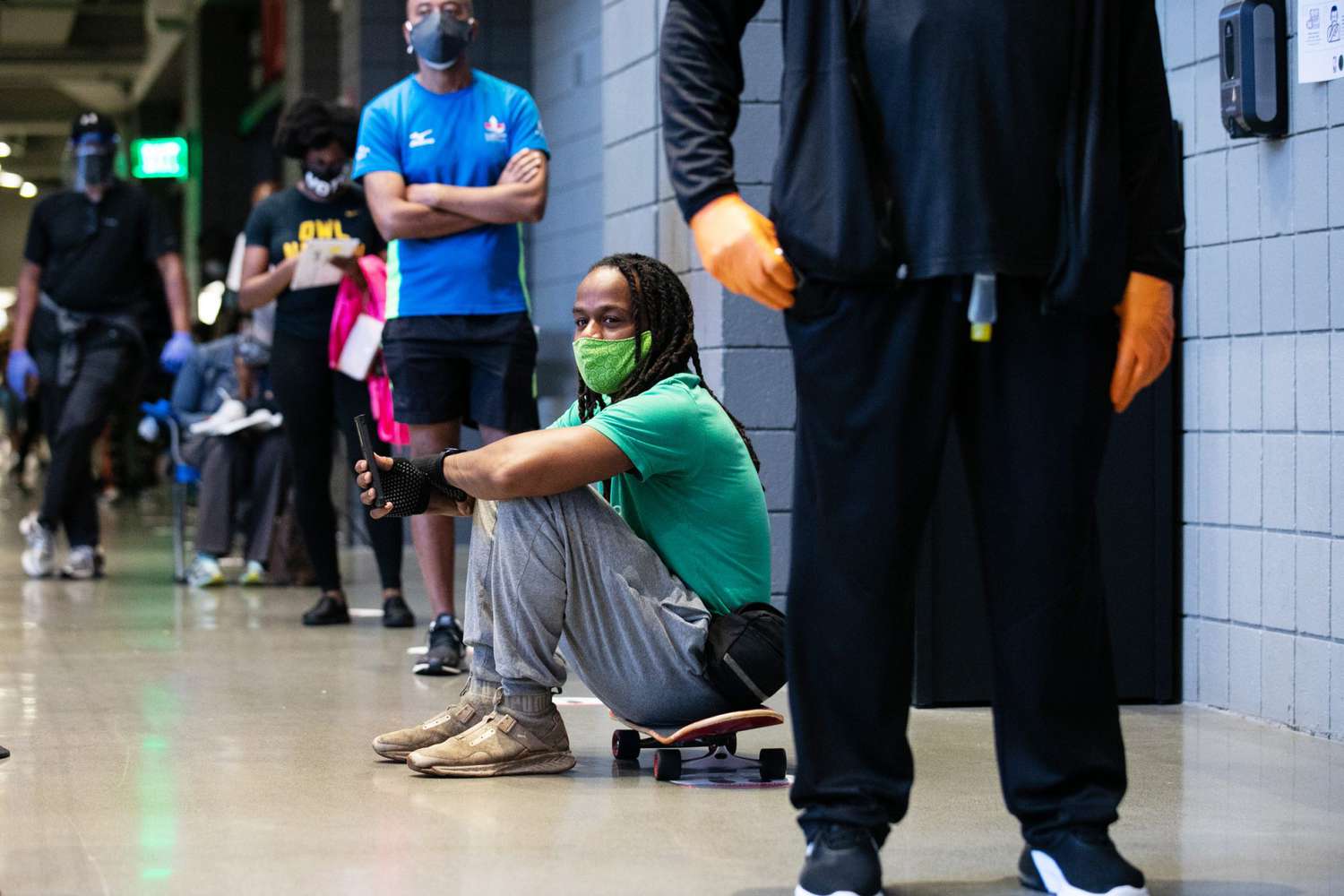As of Friday former Vice President Joe Biden had pulled into a narrow lead in Georgia in the contest over Donald Trump — a victory that, if it holds, would see a crucial Republican state flip blue for the first time in nearly 30 years, underlining the extent to which the cities, suburbs and people of color there had repudiated the president.
The margin between the candidates remain razor thin — about 1,500 votes as of Friday morning — which all but ensured a recount would be possible, according to state elections officials, who said the final result may not be known until later in the month.
The delay in Georgia, officials have repeatedly explained, is largely due to the volume of mail ballots this year because of the novel coronavirus pandemic: some 1.25 million such votes were returned through Election Day, which amounts to about a quarter of all votes counted in the state so far.
But as the vote counting continued into the third day after the presidential election, Biden’s path to a win in Georgia — one of the country’s most diverse states — has become clearer and clearer.
While Trump, 77, racked up notable margins in the state’s rural and Republican-leaning areas, Biden won even more convincingly in Atlanta and its suburbs as well as in Georgia’s other urban, suburban and exurban areas, while decreasing Trump’s share of the vote in many key Republican counties.

After Trump earned clear wins in the key swing states of Florida, Ohio and Texas, many Democrats rejoiced at the news in Georgia — which seemed to prove out the success of the Biden campaign’s push to flip the state along with Arizona, where he was also narrowly ahead as of Friday. (In both Arizona and Georgia, some observers noted, Trump had previously picked notorious feuds with favored sons: the late Sen. John McCain and Rep. John Lewis, respectively.)
Winning there would only pad Biden’s Electoral College victory, given his leads in the Midwestern states of Michigan, Pennsylvania and Wisconsin.
The last time Georgia voted for a Democratic presidential nominee was for Bill Clinton in 1992; before that, it was during Georgia native Jimmy Carter‘s two campaigns, in 1976 and 1980.
On social media, credit began cascading to Stacey Abrams, a former Georgia legislator-turned-voting rights activist who narrowly lost the state’s 2018 race for governor and who has spent years organizing Democrats there and registering new voters.
On Twitter on Friday, Abrams spotlighted the work of others, including groups that supported turnout from Black, Latino and Asian voters.
“Let’s shout out those who’ve been in the trenches and deserve the plaudits for change,” she wrote.
President Trump has responded to the increasing reality of his defeat with defiance and deceit — saying in a Thursday night speech from the White House that the votes against him were fraudulent.
Some Republican lawmakers in Georgia took up that evidence-free argument, appearing at a rally Thursday night in Atlanta along with Trump’s son Donald Trump Jr., according to The Atlanta Journal-Constitution.
However, the state’s top officials — Gov. Brian Kemp and Sens. Kelly Loeffler and David Perdue, all of whom are Republicans — were absent, though Loeffler and Perdue posted social media messages calling for transparency and fairness in the elections and offered other support for Trump.
The president has likewise accused the elections in states where he is losing of being run by Democrats, though Georgia’s top elections officials are all Republicans.
On Friday morning one of those officials, Gabriel Sterling, provided an update on the remaining votes to be counted in Georgia. He told reporters there were some 4,100 votes remaining statewide, mostly in the Atlanta area, as well as an unknown number of properly postmarked military or overseas ballots that could be received by the end of Friday.


Sterling noted the extremely small margin between the candidates — “less than a large high school” — underscored the importance of investigating any serious claim of fraud or other issue as well as ensuring every legally cast vote was counted correctly.
But so far, he said, “We’re not seeing widespread irregularities, we’re not seeing anything widespread.”
There are “many, many safeguards” to “ensure the integrity of the vote” in Georgia, he said.
Earlier this week, he said their priority was precision.
“Fast is great and we appreciate fast,” Sterling said. “We more appreciate accuracy. Accuracy is going to be the bedrock upon which people will believe the outcome of these elections, be they on the winning side or the losing side.”




